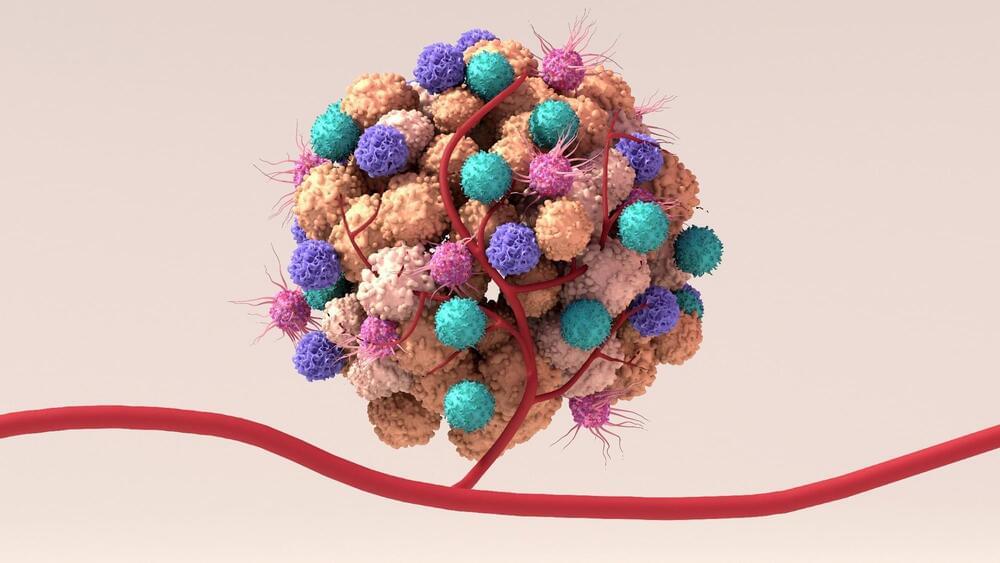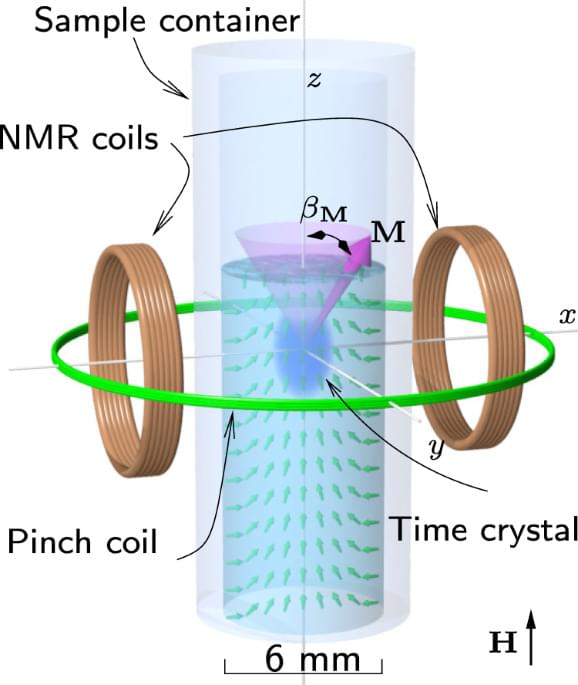The year is 2021, and journalism is dead. It does not particularly matter what your personal beliefs or creed are, at this point it has become blindingly apparent that the vast majority of the media are not overly concerned with the truth.



In a recent study published in Cell, researchers investigated whether the observed tumor cellular heterogeneity and architecture result from stochastic and chaotic events or whether there is more coordination in the histopathological chaos of cancer. They also explored mechanisms shaping the highly complicated tumor landscape.
Both embryology studies and oncology research activities are aimed at elucidating tissue growth mechanisms; however, they share limited conceptual and technical overlap. Morpho-genomic processes and tissue-level signaling are prime mechanisms in the field of embryology. Researchers have developed various approaches to explore the associated mechanisms; however, cell, genetic, and biological means have been predominantly focused upon, leaving the spatial aspects of tumor cells under-studied in the field of oncology.

Is the Head, Nuclear Safety Office, overseeing the development of the DEMO Fusion Reactor (https://euro-fusion.org/programme/demo/), at EUROfusion.
DEMO (DEMOnstration Power Plant) refers to a proposed class of nuclear fusion experimental reactors that are intended to demonstrate the net production of electric power from nuclear fusion.
EUROfusion is a consortium of national fusion research institutes located in the European Union, the UK, Switzerland and Ukraine. It was established in 2014 to succeed the European Fusion Development Agreement (EFDA) as the umbrella organization of Europe’s fusion research laboratories.
Prior to this role, Ms. Elbez-Uzan spent over a decade at the ITER Organization as Head of the Division of Nuclear Safety.
ITER (the International Thermonuclear Experimental Reactor) is being built in southern France where upon completion of construction of the main reactor and first plasma, planned for late 2028, it will be the world’s largest magnetic confinement plasma physics experiment and the largest experimental tokamak nuclear fusion reactor.
Prior to this role, Ms. Elbez-Uzan spent several years as Deputy Head of the Nuclear Safety Department, at the French Alternative Energies and Atomic Energy Commission (CEA), a key player in research, development and innovation in four main areas: defense and security, low carbon energies (nuclear and renewable energies), technological research for industry, and fundamental research in the physical sciences and life sciences.


Instead a clump of her cells were grown in a lab to create what’s known as “cultivated meat”, a product touted as far better for the climate – as well as the mortal concerns of pigs and cows – and is set for takeoff in the US.
“A harmless sample from one pig can produce many millions of tons of product without requiring us to raise and slaughter an animal each time,” said Eitan Fischer, founder of Mission Barns, a maker of cultivated meat that invited the Guardian to a taste test in an upscale Manhattan hotel. The meatball was succulent, the bacon was crisp and, even to a vegetarian, both had the undeniable quality of meat.
“We got that sample from Dawn and she’s living freely and happily,” said Fischer, whose company has identified a “donor” cow, chicken and duck for future cultivated meat ranges. “This industry will absolutely be transformative to our food system as people move toward consuming these types of products.”

The brain is often regarded as a soft-matter chemical computer, but the way it processes information is very different to that of conventional silicon circuits. Three groups now describe chemical systems capable of storing information in a manner that resembles the way that neurons communicate with one another at synaptic junctions. Such ‘neuromorphic’ devices could provide very-low-power computation and act as interfaces between conventional electronics and ‘wet’ chemical systems, potentially including neurons and other living cells themselves.
At a synapse, the electrical pulse or action potential that travels along a neuron triggers the release of neurotransmitter molecules that bridge the junction to the next neuron, altering the state of the second neuron by making it more or less likely to fire its own action potential. If one neuron repeatedly influences another, the connection between them may become strengthened. This is how information is thought to become imprinted as a memory, a process called Hebbian learning. The ability of synapses to adjust their connectivity in response to input signals is called plasticity, and in neural networks it typically happens on two timescales. Short-term plasticity (STP) creates connectivity patterns that fade quite fast and are used to filter and process sensory signals, while long-term plasticity (LTP, also called long-term potentiation) imprints more long-lived memories. Both biological processes are still imperfectly understood.
Neuromorphic circuits that display such learning behaviour have been developed previously using solid-state electronic devices called memristors, two-terminal devices in which the relationship between the current that passes through and the voltage applied depends on the charge that passed through previously. Memristors may retain this memory even when no power is applied – they are ‘non-volatile’ – meaning that neuromorphic circuits can potentially process information with very low power consumption, a feature crucial to the way our brains can function without overheating. Typically, memristor behaviour manifests as a current–voltage relationship on a loop, and the response varies depending on whether the voltage is increasing or decreasing: a property called hysteresis, which itself represents a kind of memory as the device behaviour is contingent on its history.
Some young sea spiders can regenerate significant portions of their bottom halves, including muscles, reproductive organs, and the anus, or can function without them, according to a study published on January 23rd in the Proceedings of the National Academy of Sciences.
The ability to regrow body parts is not widely seen, but some species possess this capability. For example, some sea slug heads can regenerate their entire bodies, and sea spiders and other arthropods can regrow parts of their legs. Researchers previously believed that arthropods could only regenerate legs, possibly due to their hard exoskeletons preventing them from regenerating other body parts.
Evolutionary biologist Georg Brenneis of the University of Vienna first discovered that sea spiders (Pycnogonum litorale) might have the ability to perform more complex regenerations when he accidentally injured a young specimen in the lab with forceps. The specimen was still alive despite being injured, so he decided to observe it.

Year 2022 face_with_colon_three
Recent work has reported a realization of a time crystal in the form of the Bose-Einstein condensate of magnons in superfluid 3He. Here, the authors study the dynamics of a pair of such quantum time crystals and show that it closely resembles the evolution of a two-level system, modified by nonlinear feedback.

Gautam Adani, the world’s third richest person, is apparently hooked on OpenAI’s ChatGPT. He said so himself, in a post-Davos blog post on LinkedIn.
ChatGPT “was the buzzword at this year’s event,” Adani wrote in the post, caveating that he “must admit to some addiction since I started using it.”